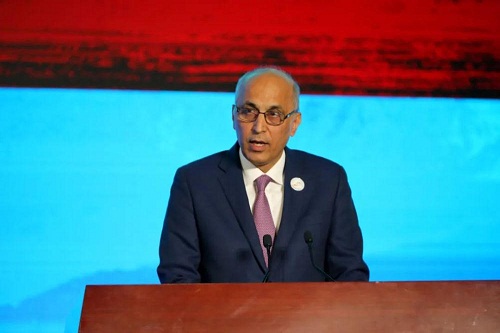Chinese success in rural development worth emulating for Pakistan: Ambassador Haque

Beijing: Pakistan Ambassador to China, Moin ul Haque has said that Chinese success in rural development was worth emulating for developing countries like Pakistan which were striving for national development and socio-economic progress.
It has inspired us with a new hope that poverty is not ordained in mans destiny and that it can be uprooted by dispassionate, concerted and sustainable efforts, he said while addressing the 2020 BRI Beautiful Village Forum, themed Building a Beautiful Village by Holding Hands with BRI, held in Longnan, Gansu province of China.
He believed that rural development is facing a series of issues such as massive urbanization, inequality and environmental degradation imperiling prospects of future growth which led to low productivity, poor rural infrastructure, digital exclusion and meagre access to financial markets.
These factors dis-empower and discourage rural youths and trigger waves upon waves of migration to big cities, thus further complicating the governance task.
To solve those problems, he mentioned the importance of digital agriculture, technology and tourism, China Economic Net (CEN) reported on Thursday.
Ambssador Haque also highly spoke of China’s achievements in revitalizing the countryside.
China’s peaceful rise and its economic achievements are indebted to a remarkable feat of development and prosperity with no precedent in the annals of history.
In particular, bringing out 800 million people from the web of poverty is a success story and an enduring service to humanity.
The per capita disposable income of rural residents in China rose from 8,296 yuan in 2013 to 16,021 yuan in 2019 and the income gap between urban and rural residents has been narrowing year by year.
Meanwhile, by 2020, China has accelerated the formation of rural ecological civilization system, achieved the phased targets for pollution prevention and control and generally improved the quality of the ecological environment.
Nearly 100 guests from more than 20 countries participated in the forum through a combination of online and offline approaches.
